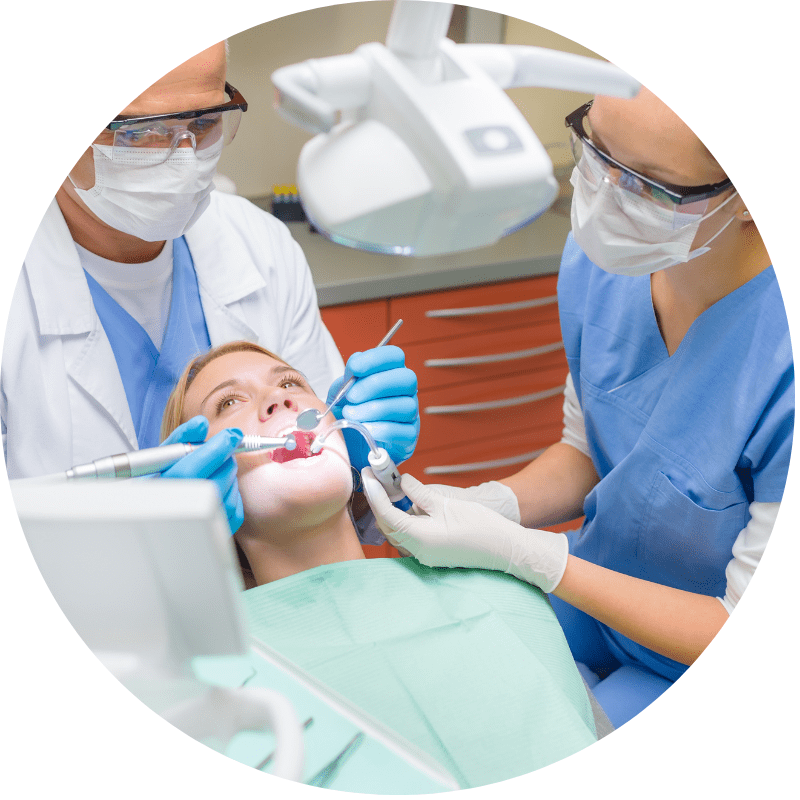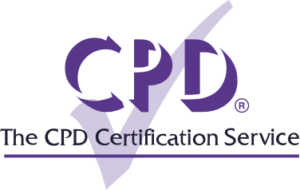In this Dental Nurses CPD Guide
Why do Dental Nurses need CPD?

A dental nurse is a healthcare professional who assists dentists and other dental professionals in providing patient care. Their duties include preparing and maintaining equipment, assisting during procedures, providing patient support and education, and ensuring proper infection control measures are followed. Having a dental nurse in the surgery room is important because they provide support and assistance to the dentist during procedures and help to ensure the safety and comfort of the patient. They can also advise on proper oral hygiene practices and provide post-operative care instructions.
What our customers have to say
Dan King
Mobilisation, Training & Performance Manager

Sophie Aiken
HR Manager

Harriet Lee
Retail Recruitment Manager

What CPD courses do Dental Nurses need?
There are a range of CPD courses on our website that are suited to a dental nurse. Some of these are:
Understanding GDPR – GDPR legislation came into effect in 2018 and is something that all workplaces should have knowledge of. This course will look at the key principles of the GDPR and what the aims of the legislation are. It will look at the legal responsibilities that workplaces must comply with.
Care Certificate – the Care Certificate was introduced in April 2015 in response to the findings of the Cavendish Review, which was published in July 2013. The Cavendish Review found that training and development in health and social care were inconsistent and inadequate. Health Education England, Skills for Care and Skills for Health jointly developed the Care Certificate to improve the quality of training. The Care Quality Commission (CQC) expects health and social care providers to induct, support and train their staff appropriately. By using the Care Certificate as part of their induction programme, employers can demonstrate to the CQC that they are meeting these criteria. The Care Certificate is a vital part of training and development for those who are new to health and social care or for those staff who already work in the sector.
Complaints Handling – this course will ensure you gain knowledge on handling complaints in the correct way; this will impact your workplace in a positive way and will reduce the risk of lost custom. This course will give you a greater insight into how you can handle complaints and how to reduce the number you receive.
Infection Control – understanding how to prevent exposure to microorganisms, as well as having effective cleaning procedures in place and how to deal with spillages, is essential when working as a dental nurse. This course will explain all the policies, procedures, systems and legislation in place which are vital for dental nurses to know. It will also cover the most common infections and what to do in the event of infection control measures failing.
Customer Service in Health and Social Care – in this course you will explore the importance of effective communication, the importance of body language and appearance in communication, and how you can improve your active listening skills. Finally, you will consider what a complaints handling procedure is and how you can handle a complaint using the skills that are covered in the course.
Disability Awareness – in this course you will gain a greater insight into what a disability is, the different types of disabilities and how to ensure workplaces make reasonable adjustments for people with disabilities. You will also explore how to ensure the recruitment process is fair and the responsibilities of employees and employers.
Needles and Sharps – needles and sharps are something that everyone working in the healthcare industry should have good knowledge of. In this course we will be looking at the laws surrounding sharps, how employees can keep themselves protected, as well as using needles and sharps safely and why it is so important.
PPE in Healthcare – in this course you will look at the PPE guidance with regard to the healthcare sector and consider healthcare-associated COVID-19 risks at a local level and according to local context. You will know when patients should and should not wear PPE as well as the importance of the safe use of PPE and some information on how employees should be trained to use it. You will also gain a greater understanding of the importance of selecting, using and maintaining PPE.
Time Management – in this time management course, you will explore what time management is and why it is important, as well as the indicators of poor time management. You will learn how you can prioritise tasks and what tools to use to enable you to do this. You will also learn what some of the possible barriers could be and how you can overcome these. You will consider some of the techniques and tools you could use to assist you in time management, such as the 80:20 rule, time blocking and Parkinson’s law.
Download our CPD trackerA guide to CPD for Dental Nurses
To become a dental nurse, you need to complete a course accredited by the General Dental Council (GDC). This can be a full-time course or an apprenticeship, which usually takes around 18 to 24 months to complete. After completing the course, you will need to register with the GDC to practise as a dental nurse in the UK. The GDC does require ongoing training for dental professionals in the UK which is known as Continuing Professional Development (CPD) and is a requirement for maintaining registration with the GDC.
The GDC recommends a minimum of 50 hours of CPD every two years, with a minimum of 10 hours in verifiable CPD. Verifiable CPD must be relevant to the registrant’s scope of practice and include evidence of the activity and learning outcomes. Dental nurses can choose from a variety of CPD activities, including courses, conferences, e-learning modules and reflective practice, which can all count towards CPD training.
CPD certificates
To successfully complete one of our CPD courses, you must pass a short end of course quiz. Upon passing this you will have access to a CPD certificate which you can download straight to your computer, or we can post directly to your address. Your certificate serves as proof that you have completed some CPD training and can be used as CPD evidence, so it is important that you keep it safe.
Logging CPD hours
Professions that require adherence to a regulatory body, such as the GDC for dentistry, have increased specifications on the CPD training of professionals. They ask for a certain number of hours each year to be spent on CPD training. To prove that you have met this requirement, you can log the number of hours that you spend on CPD training.
Keeping evidence
Keeping evidence of the CPD training that you have completed can form part of a CPD portfolio. Regulators may request proof of your CPD training, so keeping evidence of this is key.
You should keep evidence of anything that you can count towards CPD such as:
- Working with a mentor.
- Completing a webinar.
- Completing coursework.
- Completing online research.
- Attending conferences.
Renewing CPD certificates
Your CPD certificates should be renewed every two years to keep up to date with the latest healthcare knowledge, skills and best practice. You can do this by completing a refresher of your course as your two-year period is coming to an end, or you can even complete the higher level of your course if there is one, to further increase your knowledge.
























